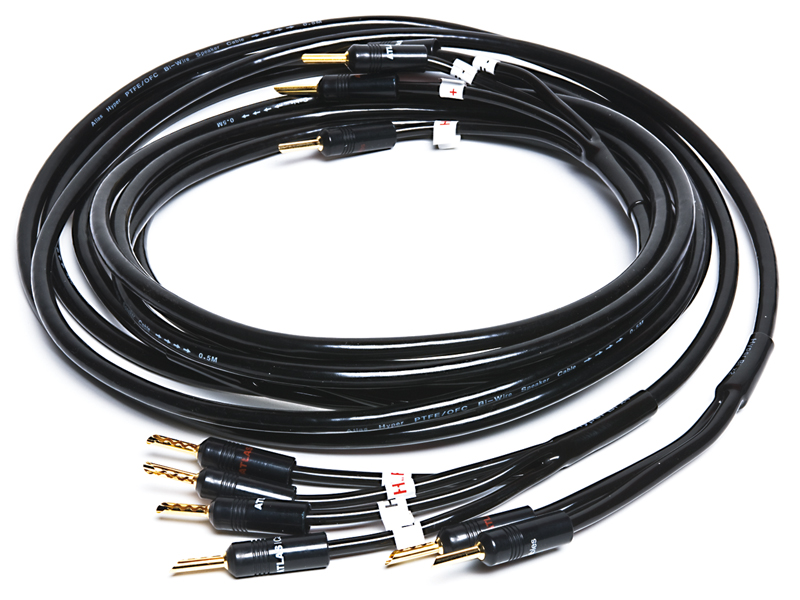TechRadar Verdict
The admirably clear upper frequencies heard through this cable make it a good choice for the listener who desires detail and clarity above all else.
Pros
- +
Good twin conductor design
- +
Great with treble
Cons
- -
Bass not quite as good
- -
Not suited to super-extended large speakers
Why you can trust TechRadar
Atlas's Hyper range includes both single and bi-wire cables and like one or two other makers, Atlas has chosen to offer different sizes and specifications of conductor for bass and treble sections, connected together at the amplifier-end only.
In this case, bass is carried down a two square millimetre pair of conductors of stranded construction, while treble has 1.2 square millimetre of solid copper.
The arguments over solid/stranded conductors are old and unresolved, but Atlas explains that treble is best served by a solid-core construction while bass is simply in need of more copper, which is more practical in a stranded design.
Construction
Both conductors are made of high-purity copper, insulated with Teflon, a low-loss material whose properties are slightly compromised, we found, by the cotton and paper fillers used and the PVC overall sheath.
We particularly liked what this cable does with the upper midrange and treble, which seems to be clear and open. For large ensembles, it is easy to pick out individual instruments, while voices are clearly and distinctively characterised.
Bass is also quite good though less strikingly, so: we had the occasional moment of doubt that its extension is quite as good as some of the cables in this group can offer and it sometimes has a less-rounded quality to it, as well, making more of a dull thud out of what had previously been a clearly pitched low note.
The extent to which that is audible depends on the loudspeakers and with smaller standmount models it's hardly detectable. The cable is, perhaps, less well-suited to super-extended larger sized loudspeakers.
